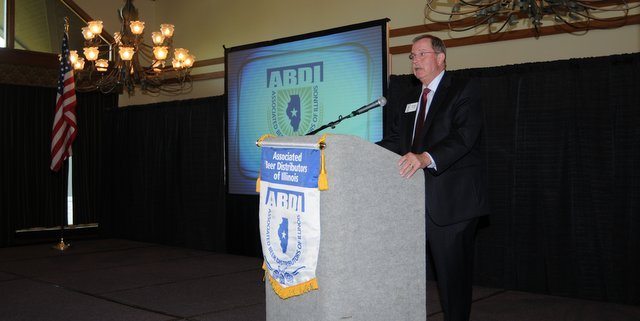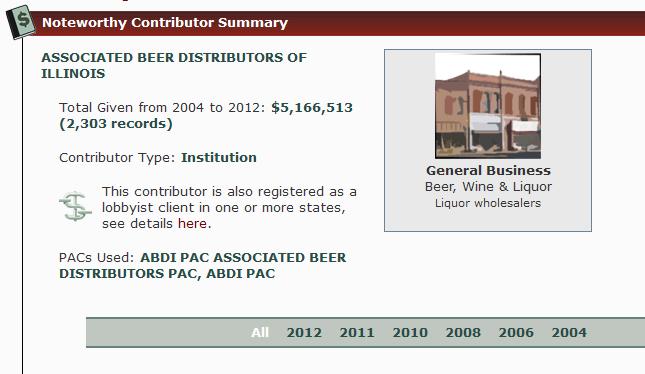We pick up right where we left off in Part 1 of our exclusive sit-down with outgoing ABDI President Bill Olson.
In this installment, Olson claims he was mislead about Revolution Brewing’s plans for its production brewery and brewpub during the SB 754 talks, he also offers some insight into the HB 2606 negations, which forced Anheuser-Busch to sell its ownership interest in Illinois distributor City Beverage and the possibility of a “craft beer bubble,” in Illinois.
Guys Drinking Beer: You mentioned the 7,500 barrels that “they,” told you that was the amount they need to self-distribute. When you say “they” who gave you – if you can recall — that 7,500 barrel number?
Bill Olson: I don’t want to put anybody on the spot, but I will, I think it was Chuck [Sturhenberg owner of Big Muddy Brewing] that said it and we also talked with Rolling Meadows – which was just really being created and maybe the newest craft brewer at the time. One of our distributors had some conversations with Argus up in Chicago. When it was presented to them, will this solve the problem, they all said, “Fine.”
Now remember here, the [Illinois] Craft Brewers Guild, the issue was that if no legislation passed nobody could self-distribute. Judge Dow’s ruling would have gone into effect and there would be no argument about how much you want to have. No. No craft brewer, no big brewer, no brewer could self-distribute period. So we really went in with the idea of making a limited accommodation to help get small, start-up breweries going and get their niche in the marketplace and then go back to the [three-tier] system that has worked in the state since the end of prohibition.
And one of the interesting points on that is that they can still remain a craft brewer up to 15,000 barrels but they could only self-distribute 7,500. That wasn’t an accident. The idea of that is, when they start reaching that 7,500, they start thinking about how am I going to get more distribution and transition under their mode, their business model, knowing when they went in that they were going to have to do that and start developing a relationship that went back to the traditional way of having a three-tier system that worked for the manufacturer, the distributor, the retailer and the consumer.
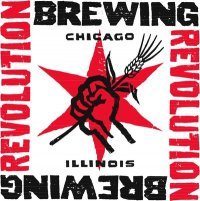
Their [Revolution’s] argument was, “we need time to transition from our brewpub to our production brewery” and gave us every indication that when they made that transition they were going to get rid of the brewpub.
…
Once it got on the books we found out they didn’t want to get rid of their brewpub. They had no intention of stopping being in two licensed levels of the three-tier system.
GDB: So, looking at the bill that passed this past session that raised the production cap to 30,000 barrels and kept the self-distribution cap at 7,500: when you look back at when SB 754 was passed up to present day a lot has changed. You’re looking, now, at brewpubs who are looking at opening more than on location. You have a brewpub like Revolution who opened a production brewery. Do you feel that the legislation and the rules that have been set up have kept up with the growth of Illinois’ brewers and the way they have grown?
Olson: There’s a great example of no good deed goes unpunished. We were approached during the final negotiations on SB 754, it was brought to our attention that one brewpub in Chicago, Revolution Brewing, was in the process of creating a production brewery. Well, under the current law at that point in time, the Commission already said you cannot hold a brewpub license and a craft brewer’s license – or any brewer’s license. You can’t do it.
Their [Revolution’s] argument was, “we need time to transition from our brewpub to our production brewery” and gave us every indication that when they made that transition they were going to get rid of the brewpub. So we put in there that a craft brewer, which then was defined as the 15,000 barrels, could continue to hold a license for a brewpub. We probably were remiss in not saying that there is a timeframe. We probably should have put in there, they can only hold it for two years, or a year, or something. But we were trying to make an accommodation to help this one brewpub up there.
Once it got on the books we found out they didn’t want to get rid of their brewpub. They had no intention of stopping being in two licensed levels of the three-tier system. Then we get into the next year where they are reaching their production cap of 15,000 barrels. The key there being, that is the definition of a craft brewer and only a craft brewer can continue to own a brewpub.
(Editor’s note: Revolution Brewing Owner Josh Deth responded to Olson’s claims hours after Part 2 posted. His response is HERE.)
The argument that we are trying to keep them down on production — the production isn’t the issue — it’s the exception that says a craft brewer can also own a brewpub. If there hadn’t been this linkage in there between a craft brewer being an exception to the entire regulatory system and being able to hold a license in two tiers of the system – as a retailer, as a manufacturer – I don’t care if they define a craft brewer in the self-distribution provision to more than that. It didn’t matter. As long as they kept the self-distribution down because then you wouldn’t have the other issue we’ve got to be conscious of, of discriminating against out-of-state breweries. You’ve got to allow them to have the same self-distribution rights.
GDB: When we talk about that discrimination, the preferential treatment to in-state brewers, is that why there has been as much concern about that production cap? It started at 15,000. It’s now up to 30,000. Initially the [Illinois Craft Brewers] Guild was looking at 60,000 and recently they talked 200,000. Does that kind of throw the preferential treatment out of whack in your eyes?
Olson: Yes, at a certain level, particularly if you’ve got this craft brewing industry and you set a production level that covers everybody in the state that really fits in there except a really big brewer like Goose Island. That’s inherently preferential treatment to in-state breweries and that is a violation of the commerce clause. It was thrown out in Massachusetts. It was a wine bill that they said, “we’re going to place a limit here so that it’s not going to affect any of our in-state wineries. They’ll still be able to ship but nobody out-of-state can ship.” And somebody actually said this in debate, “So we’re protecting our in-state wineries,” which really put the nail in the coffin when it went to court. The issue being, that if you pass a cap that encompasses a large group of people in your state it’s very easy to be ruled as preferential treatment, a violation of the commerce clause and allow out-of-state brewers of any size to have the same privilege. That’s where it gets to be a problem.
By the way, that was recognized by the wine industry – when we addressed their wine shipping bill – and we wrote a cap that prevented three in-state wineries from shipping. They were all aware of the fact that if they encompassed everybody then they were opening themselves up to having the whole law thrown out as being discriminatory. And the three people wanted it, they agreed to it. We don’t see the same cooperation here in the brewing industry, where they realize that a production cap that’s going to encompass everybody in the state is subject to being attacked as being discriminatory and allow whatever privileges that group has would let everybody in the country – no matter what size they are – come in.
And I don’t know why they need it, quite honestly. The only exception that it gives them is this continued ability to hold a license in two different levels of the regulatory system. So they’re talking about production caps, but the real issue is trying to maintain their ability to hold a license in two different levels of the three-tier system.
Revolution wants to keep its brewpub and be a production brewery. They don’t want to be or, they want to be and/or.
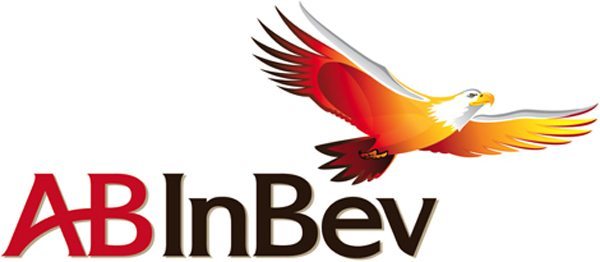
I don’t think this is a done deal yet. As far as I’m concerned, Anheuser-Busch’s position – all along – going back to the early days of SB 754 was to stall. “We don’t need to do this, this year,” they kept arguing that.
GDB: I would have loved to have been a fly on the wall this past session when you guys, and the Wine and Spirits Distributors of Illinois and Senate President [John] Cullerton (D-Chicago) and representatives from Anheuser-Busch sat down in a conference room and talked about the legislation that prohibits a brewer from owning a distributor. How did that come about? Was this an instance where you guys came to A-B and said, “We have a bill and we have support and we’re going to move it?”
Olson: It sort of came around the other way, where they knew we were going to introduce legislation and they, I think, made the assumption that we could pass it in whatever form we wanted to pass it. Well, they made the argument to Senate President Cullerton that they understand – they are willing to get out of the distribution business – they’re willing to do what the intent of that legislation would be, which would prevent them as a brewery from owning a distributorship. But they needed time to get an orderly sale and dissolve their ownership interest in City Beverage. They just needed time. So Senate President Cullerton said, “That’s not an unreasonable request.” So we’ll give them some time but the legislation is going to make it absolutely clear that they cannot own a distributorship, which the legislation did.
Now the whole question is they have to meet that mandate of January 1st, 2015, to be out of that business. What happens if they don’t get out of the business? Then you have to go back through this whole license revocation procedure because they won’t qualify and you revoke their license and that goes right back before the Commission. I don’t think this is a done deal yet. As far as I’m concerned, Anheuser-Busch’s position – all along – going back to the early days of SB 754 was to stall. “We don’t need to do this, this year,” they kept arguing that. And they’ve continued that, off-and-on, in variations of it. Until they sell that ownership interest in City Beverage it could still be just a stall, just to put this thing off longer to make new arguments that they should still be able to maintain their ownership interest — even though they’ve agreed to it.
GDB: It sounds to me like, even thought they came to you conceding defeat on this issue, that perhaps there isn’t a lot of trust in them to follow through on it.
Olson: There’s a lot of trust in them from a lot of people, but not everybody. They made the commitment in front of Senate President Cullerton that, that was the deal. They would be able to divest themselves of their interest if they were just given enough time and that time was agreed upon by them that they could meet it and President Cullerton is well aware that was their commitment.
(Editor’s note: The conversation about Anheuser-Busch selling its stake in City Beverage happened prior to the announcement that the Hand Family would be purchasing A-B’s remaining interest.)
Everybody understands that no PAC, including ours, is going to support somebody that’s voting against them. We’ll do a spreadsheet on every bill we have an interest in and where everybody voted and weigh the vote and come up with how well this legislator that’s running for re-election stacks up on those issues that we care about. And then we make a decision to support them or not.
GDB: I saw in the release about your retirement you were credited with starting the ABDI PAC (Political Action Committee). How does the PAC end of things, the lobbying end of things, fit into everything you do under the dome?
Olson: First of all, PAC’s are created for the purpose of supporting candidates for the purpose of election or re-election. Nothing in there is talking about legislation. We’re very careful on how we administer our PAC and require a certain amount of understanding by the legislator’s of what we do, what the regulatory system is about and how it is beneficial to the people of the state of Illinois.
We start out with a new candidate questionnaire that we send out to find out what they know about these issues. It’s also intended to educate them by talking about interstate shipments, three-tier system, etc. We will not support anybody until we get that candidate questionnaire back to know what their positions are on these issues. It’s a little easier with incumbents. We have experience with them, we know them, we’ve actually had legislative issues with which they can vote and they develop a record of supporting the industry. That’s the key. With any PAC, by the way, you support people who believe and understand with what you do – in our case as a regulated industry – and have demonstrated that they understand it and are supportive of it. And then they can qualify for receiving money to get re-elected, or in the case of a new candidate, stand for election to the Illinois General Assembly. That’s all our PAC does.
Everybody understands that no PAC, including ours, is going to support somebody that’s voting against them. We’ll do a spreadsheet on every bill we have an interest in and where everybody voted and weigh the vote and come up with how well this legislator that’s running for re-election stacks up on those issues that we care about. And then we make a decision to support them or not. It could be other issues involved that are involved. In could be how important their race is, how their opponent is coming after them. Their opponent might be very much against our industry, so we want to show that we are going to stand behind the people who have supported us and we are going to give them more support. And we have a pretty hard and fast rule and that is if we’ve come to you and asked you for support and then you run for re-election and ask us for support: if you supported us, we’re going to support you. And we aren’t going to play any games with that.
Now the only time that runs into a problem is in a re-apportionment year, usually. Because when they re-draw districts sometimes you’ll have a friend, a supporter, somebody with a positive record running against each other. And we’ll support them both. Because or position is, we’re going to support you if you have supported us. And some people say, “How can you do that?” And we’ll say, “listen, our money probably isn’t going to make or break their election.” They have a finance committee that’s out there to raise money and they have a campaign committee that figures out how to spend it and get their candidate elected. We can help them get the money then it’s their job, each of those two candidates, to figure out how best to put it into their campaign and make it beneficial to them getting elected. That’s their job.
Our commitment is if you’ve demonstrated an understanding our industry, been supportive of our industry, we aren’t going to walk away from you. We’ve done it even when we know the guy is going to lose. It’s not hurt us. You say how are we effective doing that? It’s because if the guy loses we go to the winner and say, “That’s why we did it, we support those that have helped us. Now we want to work with you, get you to understand our industry, and we hope you’ll be a supporter down the line with the understanding that we’ll stand behind you in the future.”
GDB: When someone “qualifies” for support from you guys does that guarantee, or is there an understanding, that they are to vote “yes” or “no” on bills you support or don’t support?
Olson: Not unless we want to go to jail. And we don’t want to go to jail. No, there is no such understanding. You can’t. We’re very careful on that. We get calls sometimes from somebody that will say, “I have a fundraiser coming up and we hope you can help us.” And we’ll talk about that and they’ll say, “By the way, I got this letter about this bill.” And we’ll cut them off right there. We’ll say, “I’m sorry, we cannot have a conversation – one conversation – about supporting you and voting on a bill.” We’ll cut them right off. “You can call back and we’ll talk to you in another conversation, but we are not going to allow those two subject matters to be discussed in the same conversation.”
We work very hard to make sure that we are not in any way linking that there is a contingency that if they do the right thing they will get money. We just avoid that completely.
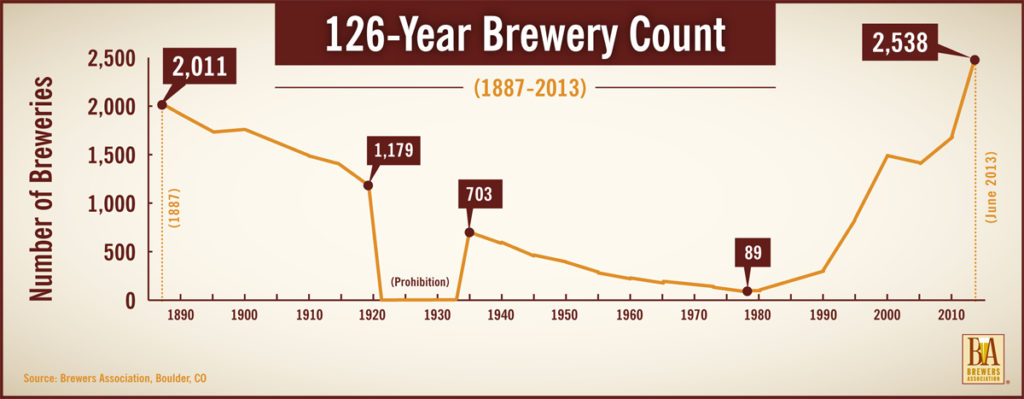
[T]he retailers will make accommodations for shelf space if they have a product they can sell. There are some craft brewers that think all they have to do is get on a shelf and then it [their beer] is going to jump into people’s shopping baskets. And if it’s not jumping into there, well it’s not their fault as a brewery, it’s the distributors fault or it’s the retailers fault.
GDB: Looking ahead on the industry here in Illinois: where do you see the distribution industry going in the future – in the next couple of years? What do you see as potential issues that could arise and how does craft beer fit into this moving forward for distributors?
Olson: I think it’s becoming more apparent, even in the craft brewing industry, that the distribution system – as it is now – benefits them. If we are independent distributors, we aren’t owned by a brewery, we don’t have an obligation to one brewer – our obligation is to make our business a viable business. And if it’s going to be a viable, profit-making business we don’t care where the beer comes from. If it’s a decent beer and it has a market and we can develop that market then we’re going to distribute it.
You go to Europe, where most of the distribution is controlled by breweries, you go into most cities [there] and you aren’t going to find a selection like we have here. You are going to find two or three brewers that control all the beer in that market area and very little choice. You go down a liquor aisle in a grocery store here, it’s mind-boggling the choices you have and that choice is created because an independent distributor said, “I can get that product and make it available to consumers and I think it’s good enough to will grow and attract more consumers: I’ll make money, the brewery will make money and the consumer will be happy.” The system works.
GDB: There has been a lot of talk, more nationally than locally, about a “craft beer bubble,” that retailers will run out of shelf space, that bars are not going to have enough tap handles to handle the number of new breweries coming in. Knowing that Illinois’ explosion in new craft breweries is relatively new, do you see a bubble in Illinois?
Olson: Here’s the situation, the way I see it: the retailers will make accommodations for shelf space if they have a product they can sell. There are some craft brewers that think all they have to do is get on a shelf and then it [their beer] is going to jump into people’s shopping baskets. And if it’s not jumping into there, well it’s not their fault as a brewery, it’s the distributors fault or it’s the retailers fault. As you get more craft brewers out there you’re going to have more people out in the market trying to distinguish themselves from other beers. They can do that in numerous ways. But that’s the brewers issue, to create an interest that the retailer wants to sell it. And the retailer, if they can sell it, will accommodate them.
A bubble; I’m more concerned about the situation where you’ve got too many breweries out there that aren’t making a better beer that has become distinctive, that has created its own following. And they’re going to say, “Well, the system’s not working for me. I want to distribute in my local area.” And what you’re going to get is the same thing you had before prohibition. You’re going to have a craft brewer go out to a retailer and say, “You put my beer on tap and you don’t put my competitor’s beer on tap. I’m going to find a way to give you financial support.” Then you run into a situation where, not only do you have discrimination, but you’ve got potential for corruption; all because someone created a product that isn’t really marketable to the general public.
(Editor’s Note: we are FULLY aware of the Crain’s story a few years ago alleging distributors doing the very same thing Olson notes above.)
That’s where we come in again. If we’re distributing it we cannot deny selling that product to every licensed retailer. We’re a guard against discrimination. I don’t see a viable craft brewing industry having any issue with the way the system works now. It will work in their benefit if they have a good product, created a market presence, created a consumer following and be able to keep supply coming.
The supply is important. We can’t get shelf space for somebody and have that space go empty. The retailer says “I’m losing sales; I’ll put a competitor’s product in there.” And then we’ve lost something we’ve worked very hard to do, which is create a way for that craft brewer to get on the shelf. All we’re asking the craft brewer in that case is produce enough, keep the supply coming, don’t run out of it and don’t over-extend yourself by trying to produce too many different beers that you aren’t going to find a market for.
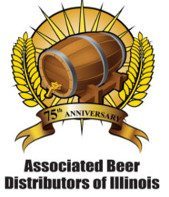
I have no doubts that he’s going to do a great job – and not just succeeding me but doing his own thing.
GDB: Last and final question: what do you want people to know about your successor Bob Myers?
Olson: Bob is very, very qualified person. He’s worked for me for 20 years as my vice president/director of government relations. He knows the industry very well. In fact, he like I, both came in to this business without any real beer background. We learned it. He has learned it and he has all the ability and capabilities of continuing ABDI as an effective way for beer distributors to be represented in this state.
He has the respect of our members, he has the respect of legislators and of course I respect him. And I’m very glad he got the position. I have no doubts that he’s going to do a great job – and not just succeeding me but doing his own thing. He’s capable enough that if the association needs to change he can manage the need for those changes.
– – – – – – – – – – – – – – – – – – – – – – – – – – – – – – – – – – – – – – – – – – – – – – – – – –
To Olson’s credit there was no “handler” in the room — no PR person waving off questions or trying to cut the interview short. Just me and Bill in a conference room talking about beer, politics and the distribution industry. I asked him to set aside thirty minutes for the interview and I got 90 minutes.
I could have easily pared this down to a few hundred word post and been done with it, but Olson’s insight was so intriguing I didn’t want to be the one to decide what made the cut and what didn’t. What you’ve read over the last two days underwent very few edits, except to trim down my long-winded questions. Olson’s comments are verbatim.
Were there follow-up questions I wanted to ask or wish I had the chance to ask? Sure there were. But I can’t think of one instance in my fifteen years working in broadcast journalism where I didn’t look back on an interview and think, “man, I wish I would have asked about that.”
Finally, I was struck by the candor of our discussion. Olson didn’t seem to hold much back nor did he balk or flinch at any of the tougher questions I asked.
